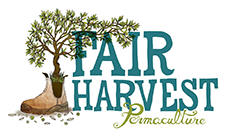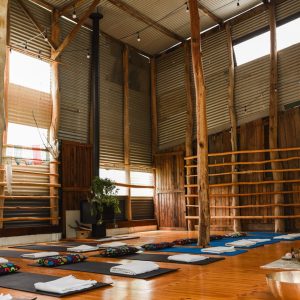An important aspect of permaculture design is to always consider the whole system and the relationship of the elements which combine together to make it. This idea of “whole-and-its-parts” is relevant whether you are cooking a meal, designing a productive vegetable garden or coordinating a permaculture design course (PDC).
While food and location are important parts of PDC preparation, the major design elements we work with are students, teachers and support crew and the “site” that we design around is two weeks of precious time. People Care becomes the permaculture ethic which focuses the design principles, though we always keep Earth Care and Fair Share in mind. Rather than designing flows of water, solar energy and nutrition, for a course we design flows between theory and practice, design and landscape and social connections between students, teachers and local community. A lot of those flows and relationships are set in place on paper, email and spreadsheet many weeks before students make their way to Margaret River. Just like gardens and meals, there is something more than the design which determines the particular essence and identity of how the course whole and parts function in reality.
This was Fair Harvest Permaculture’s 12th permaculture design course and while it always feels lovely, January 2019’s course, the whole-and-its-parts of content, site in Margaret River, teaching community and students felt extra special.
So what made everything work together so well? Every morning Do incorporated students into the daily rhythm of work in the beautiful and productive gardens. Maybe it was Jodie’s Rhubarb Upside Down cake or Sweet Potato Brownies or zoodles (zucchini noodles) and pesto? While it wasn’t intentional it could be that starting the PDC on a new moon and finishing just shy of the full moon was a contributing factor. (If it works for plants why not people?) New additions to the permaculture learning experience were the goats Cassis and Frankie, and Houdini the escape chicken who made the rounds of the campground. Though perhaps it was sips of Margaret River wine and local weather of warm days and cool nights? Then of course there was the brand new campsite at Fair Harvest, with amazing showers, camp kitchen and comfpost loos. These are just some of the ingredients that supported January’s teachers, students and Fair Harvest hosts and the way they taught and learnt, played, lived and designed together.
Strengthened community, shared meals and out of class experiences are supplementary yields that we and the students gained, but learning about regenerative design and practice is at the heart of a permaculture course. Regenerative design goes beyond sustainability to establish systems which heal the land and local community, and which are continually providing yields of resources like food, energy and water.
This year Fair Harvest’s students worked on land-based designs for a local couple who had recently bought a hectare block of ex-dairy land just north of Margaret River. While our clients had experience setting up small gardens at their current home on a bush block, they wanted ideas about how to make best use of the new site’s larger cleared space, to support family and their community, and how to incorporate an initial dwelling and hopefully an Earthship into a design suitable for the region’s Mediterranean climate. Challenges which the students had to work with were compacted soil, bushfire threats to the south, kangaroo grazing and heavy water flows across the land in winter and long dry summers.

PB Foreman demonstrating how to use an A-Frame to measure contours. This information is used to design water flows across the site.
Across all groups the students paid a lot of attention to designing good water systems, management of wildlife and livestock, long term planning, ecological succession of plantings, fire safety and usability of the site. As always students drew on what they’d learnt from their teachers Jeff Nugent, PB Foreman, Bee Winfield, Jamie McCall, Jema McCabe, Ian Hackett, Jodie Lane, Byron Joel and Pippa Buchanan. Good learning is as much about the students supporting and teaching each other (and the teachers) and this year was no exception, with individual students’ personal experiences in farm management, landscape design, beekeeping or architecture providing extra input into their group’s learning and design experiences.
- Extract from a PDC final design: Sector Analysis
- Extract from a PDC final design: Wildlife corridors and fruiting calendar
- Extract from a PDC final design: Sector Analysis
- Extract from a PDC final design: Initial plantings
- Extract from a PDC final design: Site Assessment
- Extract from a PDC final design: Principles in Action
- Extract from a PDC final design: Pond design
- Extract from a PDC final design: Infrastructure
- Extract from a PDC final design: Long term planning
- Extract from a PDC final design: Green space
- Extract from a PDC final design: Plant assessment
- Extract from a PDC final design: Design cover page
- Extract from a PDC final design: Zones
- Extract from a PDC final design: Masterplan
It often seems like permaculture is just about gardens and farms, but in reality each student leaves Fair Harvest Permaculture with the knowledge and tools to use permaculture in their everyday life and work whether they are a barista, Landcare coordinator, student, electrician or gardener. Every cohort of students bring their existing skills and knowledge to the PDC and we send them back out into the world empowered and inspired with theory, design skills and practical experiences. This year was no exception – we started with farmers, environmental scientists, visual artists, landscape architects, naturopaths, gardeners, guitar players, carpenters, bee and pond specialists and retirees. No matter what their background, these are 20 new permaculture graduates who will now make their homes and families, workplaces and communities more caring, abundant and resilient.































